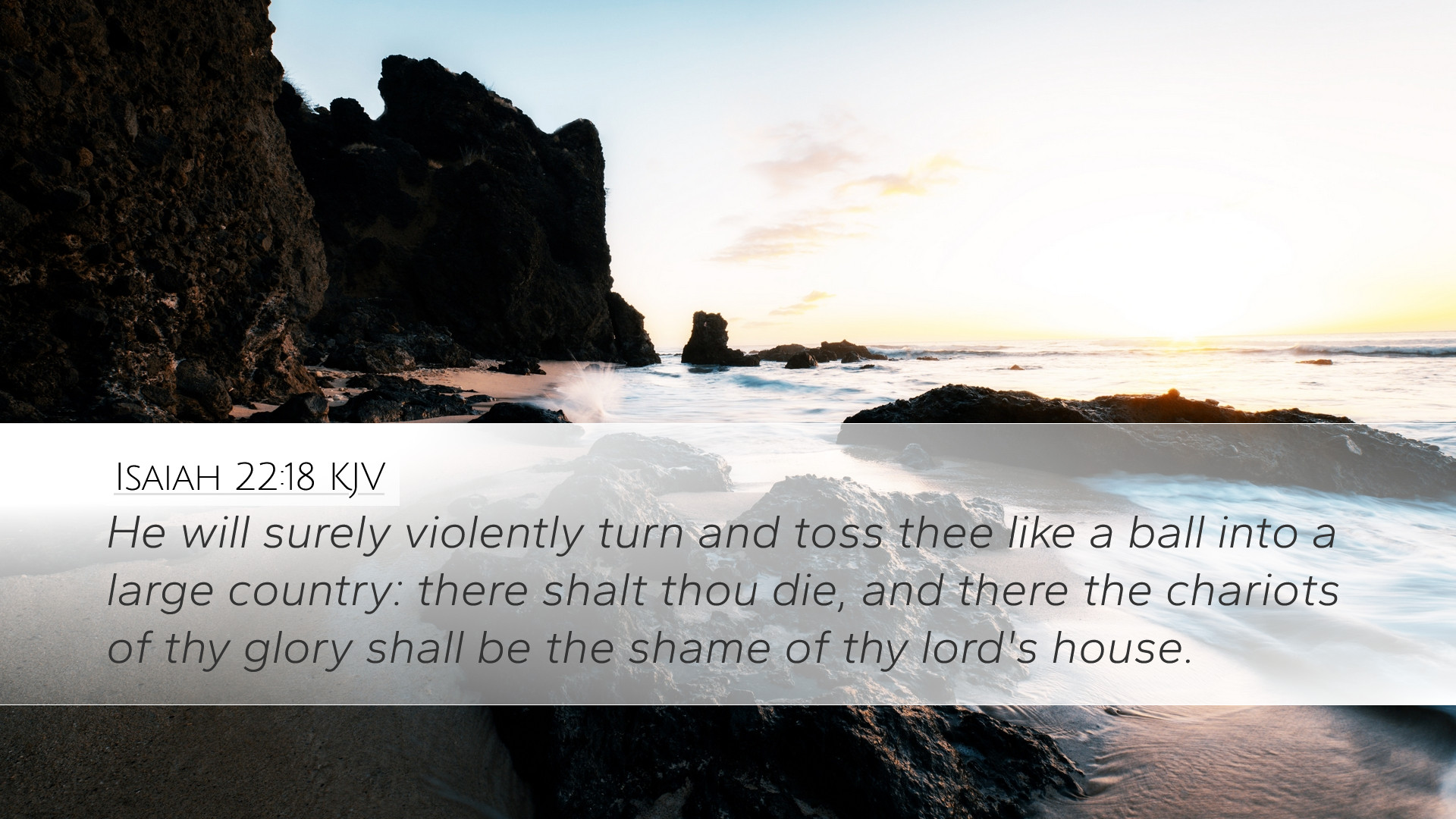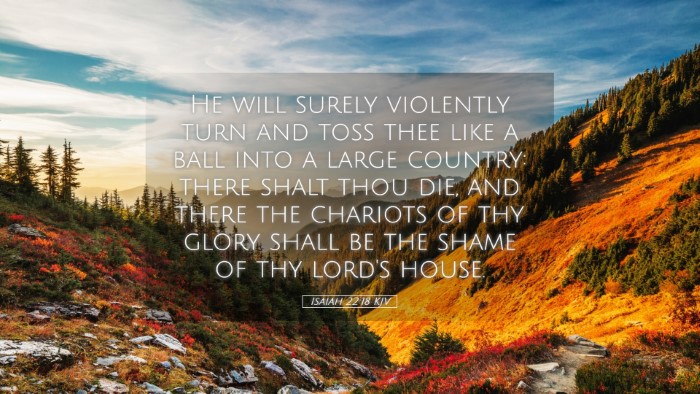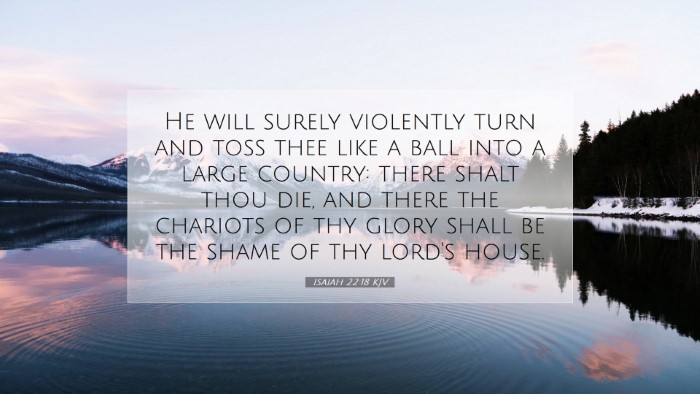Commentary on Isaiah 22:18
Text of Isaiah 22:18 (KJV): "He will surely violently turn and toss thee like a ball into a large country: there shalt thou die, and there the chariots of thy glory shall be the shame of thy lord’s house."
Introduction
This verse encapsulates a prophetic judgment directed towards Shebna, the steward of the king of Judah. It conveys God's displeasure at Shebna’s pride and ambition, symbolically depicting his downfall and the loss of his power. Here, we will explore insights from renowned public domain commentaries to deepen our understanding of this passage.
Contextual Background
The Book of Isaiah is characterized by a dual purpose: it acts as both a warning of impending judgment and a message of hope for restoration. Chapter 22 provides a vivid portrayal of judgment upon Jerusalem and its leaders, specifically through the figure of Shebna. This passage serves as a critical junction in the prophetic narrative where divine rebuke meets human folly.
Exegesis of Isaiah 22:18
Matthew Henry's Insights
Matthew Henry comments on the metaphorical language used in this verse, detailing how Shebna’s pride has led to his downfall. He notes that the imagery of being "tossed like a ball" signifies both a loss of control and a humiliating separation from one's homeland. Henry emphasizes that the fate awaiting Shebna reflects God's sovereignty over earthly authority, reiterating that no power stands against the divine will.
Albert Barnes' Analysis
Albert Barnes interprets the "large country" as a symbol of exile and punishment for Shebna’s treachery. He underlines the fact that his exalted position will not protect him from God's judgment. Barnes elucidates the notion that the "chariots of thy glory" represents the false security and pride that Shebna clings to, which ultimately leads to his disgrace. In this view, Barnes calls attention to the theological ramifications of seeking grandeur apart from fidelity to God's plans.
Adam Clarke's Observations
Adam Clarke provides a detailed dissection of the terms used in this verse. He reflects on how Shebna’s authority would be stripped away, leaving him vulnerable. Clarke also discusses the significance of the phrase regarding the "chariots of thy glory" coming as "shame." This notion illustrates how one's earthly prestige can turn to shame when faced with divine correction. Clarke aligns with the overarching theme of inevitable judgment, highlighting Shebna’s misalignment with God’s purpose for Israel.
Theological Implications
Theological reflection on Isaiah 22:18 reveals several important principles for contemporary readers, particularly for pastors, students, and theologians:
- God's Sovereignty: This passage emphasizes that God is ultimately in control, even over those in positions of authority. The nature of divine judgment serves as a reminder that all leaders will answer to God for their actions.
- The Perils of Pride: Shebna’s pride leads to his downfall, illustrating the biblical principle that God opposes the proud but gives grace to the humble (James 4:6).
- Hope and Restoration: While judgment is severe, the broader context of Isaiah also points towards eventual hope and redemption for Israel, representing God’s enduring faithfulness to His covenant people.
Practical Applications
The insights garnered from Isaiah 22:18 compel us to reflect on our own lives:
- Self-Examination: Believers are encouraged to examine their hearts for pride and ambition that leads them away from God’s will.
- Humility in Leadership: Those in leadership should aspire to emulate Christ's humility rather than seeking personal glory.
- Reliance on God: The faithful are reminded to rely not on their chariots or might, but rather on God’s power and grace.
Conclusion
In summary, Isaiah 22:18 serves as a sobering reminder of the consequences of pride and the absolute authority of God. Through the insights of Matthew Henry, Albert Barnes, and Adam Clarke, we glean rich theological truths that resonate through the ages. This passage not only reflects historical judgment but carries timeless principles relevant for the church today.


